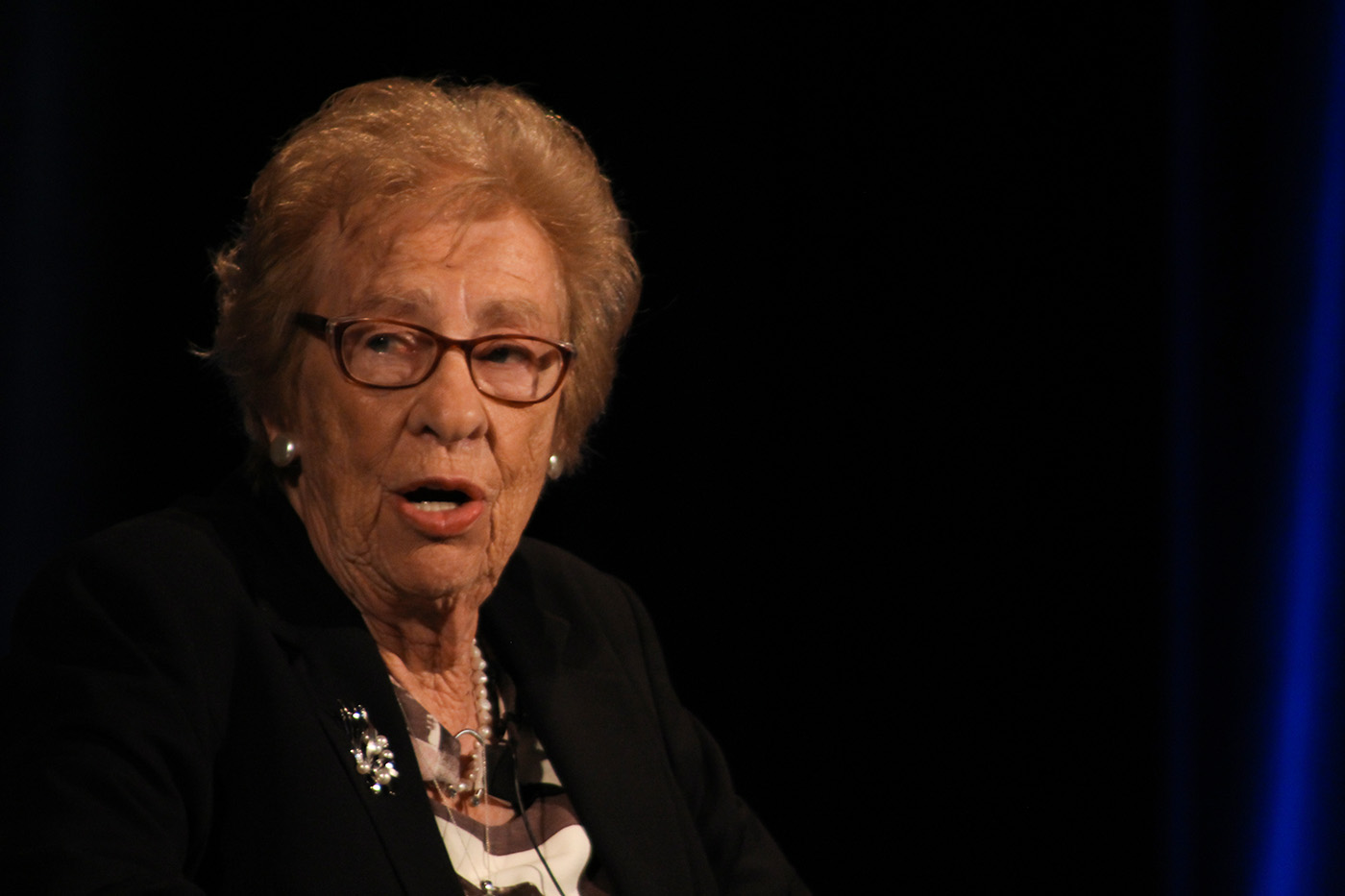Holocaust survivor Eva Schloss spoke to a sold-out Chumash Auditorium Sunday, March 10 about the trauma her family experienced before, during and after their time at Auschwitz.
Chabad of SLO and Cal Poly planned the event with help from local sponsors, the Cal Poly history department and Associated Students, Inc. (ASI) Social Justice Program Funding.
Born in Vienna, Austria in 1929, Schloss was forced to flee to Belgium at just 8 years old with her brother and parents. They then fled to the Netherlands, all to escape the German invasion of her country.
She befriended Anne Frank in Amsterdam before they both separately went into hiding in July of 1942 in a room only big enough for Schloss and her mother. Her father and brother found a separate house to live in. Her father told her it was better that way, since there was a better chance for them to survive if they split up.
“That was the first time I realized it was a matter of life and death,” Schloss told the audience.
“That was the first time I realized it was a matter of life and death”
After two years and seven hiding places, a Nazi double agent turned Schloss and her family in after threatening to kill her brother, Schloss said. They then loaded her on a train with 80 Jews and two buckets: one for drinking water, the other to be used as a toilet.
“Every day they would throw chunks of bread in like they were feeding animals,” Schloss said in her recount.
Eventually the doors opened to the sound of barking dogs and shouting guards in Auschwitz.
Life in Auschwitz
The guards ordered Schloss and the others into rows of five. Josef Mengele, nicknamed the “Doctor of Death” by Schloss, ordered girls her age into a line to the gas chambers. Schloss said she survived because she wore a coat that made her look 18.
The guards told them to take off all their clothes and tattooed them with numbers.
“‘Forget your name,” Schloss remembered them saying. “‘You are no longer a human being. You are a piece of cattle.’”
“‘Forget your name, you are no longer a human being, you are a piece of cattle’”
The guards then shaved their heads.
They had to pick from two heaps of clothing. One was full of mismatched garments ranging from winter coats to nightdresses. The other was a heap of mismatched clothes.
Every morning, Schloss had to stand for two hours for vote count. If the count was off, she had to stand another two hours.
She said it was common to sleep half the night next to dead bodies.
Eventually, she and 400 to 500 other women in the camp, including her mother, were liberated by Soviet troops.
The Red Cross wrote a letter to Schloss which said her father and brother died in the Mauthausen-Gusen camp a week before it was liberated.
Back in Amsterdam, Schloss’ mother remarried to Otto Frank, Anne Frank’s father. Anne Frank herself had already died in the Bergen-Belsen concentration camp. Schloss said she was present when Frank read his daughter’s diary during a difficult two-week period.
Schloss today
Schloss married in 1952 and has five children. She goes to synagogue regularly and said she has become an optimist in life.
Her resilience in the face of so much pain was inspiring, liberal studies sophomore Alyssa Kloczl said.
“The separation of the families is what killed me,” Kloczl said after the event. Kloczl said the realization that Schloss knew she was facing death gave her chills.
Chabad of SLO and Cal Poly President and microbiology senior Rachel Cohen said she was pleased nearly 1,000 people came to hear Schloss’ story of the Holocaust.
“I just think it’s really important to hear stories about our past,” Cohen said.

